The Remarkable Grit of International Students, a Teacher Reflection
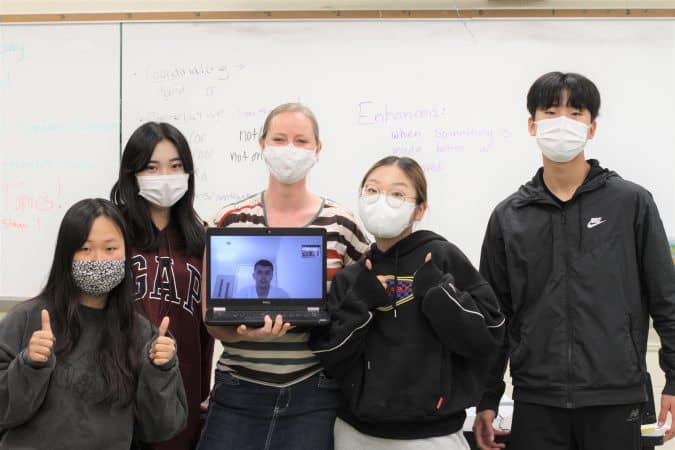
Karen Suderman reflects on her first year as the English for International Students (EIS) teacher at Eastern Mennonite High School. Karen came to EMS from her role as director of the Intensive English Program at Eastern Mennonite University. She is originally from Didsbury, Alberta, Canada. Picture L-R: Yejin Lee, Seoyeon (Nancy) Bok, Karen S with Adelaido Frrokaj on Zoom from Albania, Myungseon (Jei) Kim, Geonwoo (Steve) Kim
In 2009 my husband and I moved to South Africa where we lived, learned, and worked for seven years. Cognitively, we knew we were in for some major changes, but nothing could fully prepare us for the level of adjustments and learning that we were going to make. Simple things became enormous. The morning of our first full day in our new home seared itself into my memory. We had a car to drive (an awesome 1999 powder blue Ford Mondeo), and we knew that learning to drive on the left hand side of the road would be major. We picked up the keys, got into the car, and drove around the block. After the short drive, we staggered back into the house and took a two hour nap.
The next day was driving and grocery shopping. Not only did we have to drive a little further, but we had to reinterpret so many of the things we took for granted. What in the world was baby marrow?! Wait. It is zucchini. Mange tout, huh? Oh, snow peas. A normal grocery shopping trip took double the time we were used to spending. The post shopping nap was three hours.
This is the level of adjustment our international students navigate when they arrive. And they don’t have a spouse or extra years of lived experience to lean on like I did! I contend that the level of adjustment they have to make is larger than the one I did in 2009. The English alphabet isn’t even their first alphabet. Everything they encounter has to go through a lens of translation and interpretation.
I was and continue to be awed and humbled by my class of international students. They are far braver than my 16-year-old-self could have dreamed. To live and study abroad is a huge act of trust and leap of faith for both parents and the students. I am so glad that they chose to trust EMS, their trust was well placed.
These students step into a foreign country, trusting that they will be loved, supported, and educated when they arrive. Arms were open wide to welcome our new international students when they arrived in January. It was my privilege to teach English for international students this year. My hope for the class was that it was as much about cultural bridging as it was about language learning, that it was a space where we could work together to refine English skills without worry or pretense, and that it was a sort of resting spot for the students throughout the course of their days. Together, we have read books, perfected different aspects of grammar, practiced writing and speaking, learned through games, and worked at processing what it means to live in a country and culture other than your own. It was a complete joy to walk with this group of students.
Learning a new language is a big challenge. Not only is it difficult to memorize new vocabulary and pesky English grammatical rules which seem to have more exceptions than actual applications, learning a new language requires incredible persistence and humility. Learning a new language requires the phenomenal ability to boldly make mistakes. Learning a new language requires a willingness to constantly ask questions and to recognize the need to ask for help. “How do you say…?” “What’s the word for…?” Our international students have incredible grit and determination!
As Christians, we believe hospitality is a foundational expression of faith. In welcoming international students to our school community we have the opportunity to practice this important faith tenet. Raised in the Anabaptist/Mennonite Christian tradition, I was taught that welcoming the stranger and feeding the hungry is the very act of welcoming Jesus.
I am grateful for the amazing hospitality the EMS community shows to our international students. I am grateful to host families who provided homes to our students this past year. Opening your home in this way is an act of faith; I hope it bore good fruit.
I am grateful for the faculty and staff who worked tirelessly to support our international students. This takes no small effort, and I know that the students felt your care and attention.
I am grateful for the students who offered the gift of friendship to our international students. Your friendship means more than you know. This gift opened the door to culture and life in a way that teachers and host parents cannot. Friendship creates home. Thank you for creating home.
As a Canadian, who lived in South Africa and now resides in the United States, I have a unique privilege. No matter the direction I am traveling, I am traveling home. As our international students prepare with joy to travel home for the summer, I pray that they prepare with equal joy to return to their second home at EMS in August!
Host families needed
EMS needs host families for high school students from South Korea, Albania, and Germany for the 2021-22 school year. Hosts receive a monthly stipend in exchange for providing a home away from home. Read more and apply to become a host.
Student reflections
Living as a Stranger, by Yejin Lee ’23
I’ve always dreamed about wandering around the world, whether it’s for travel or for living. But I somehow feel there’s a significant difference between being a visitor and being a newcomer to a new country. Even though both of them are technically strangers, a visitor mostly feels welcomed and overall nice about the country, while a newcomer feels hard to fit in, not really welcomed and he or she is only a stranger to them.
It’s simple. It’s because a visitor just visits the country either for fun or for a short-term purpose and doesn’t stay for a long time with the culture, people, and society. Being a newcomer in the country, however, means a lot. As a newcomer, you have a lot of things to do with the country. Because it is a life matter. You need to find a new home, a workplace, whole new friends, and so on, and most importantly, you need to stay there for a long time.
There’s a thing called “a honeymoon” which is the first stage of culture shock.
Everyone has a honeymoon for a month or two, like a visitor does. Because you haven’t gone deeply yet. Going deeply into a whole new cultural world means something different. You start living there, interacting with new people and culture, and all the documents you have to work on for settling? It’s already getting rough. Like this, when it comes to reality, we tend to feel exhausted and often get not-a-great-feeling.
That was actually me. Somehow, 1 or 2 years ago, I really thought of America as a dream destination for my life, and I felt like I could do anything if I get there. But the answer was “no”. I felt good for a month. I’d never been to this dream country before, everyone was more welcoming than I thought, and the fresh and clean air was not like the air in my hometown at all. But after a month, like a lie, it has been really rough to live as a newcomer here.
Everything makes me miss my home. Facing lots of cultural differences, being alone in my room at night, doing school work in my second language, managing my allowance wisely, and making new friends, all those things made me really want to go home and hug my family really hard.
Someone might think I’m being over the top, but living in a new country especially when you are young is definitely not an easy thing. We sometimes get really emotional, always overthink things, and sometimes don’t know what we’re doing and why we’re doing it. And those chaotic thoughts would be reflected in my everyday life, which is certainly not the best.
Of course there was sadness, loneliness and chaos of thoughts, but most importantly, there has always been my self-esteem and pride. Even though I’m aware that I have always had pride and confidence in my life and I should be proud of my accomplishments and myself, it was really hard for me to keep my self-esteem high since I came to the states.
I knew that it had been only 2 months since I came here, but I just couldn’t get my thoughts out of my head which were basically saying to me, “Your English is not even close compared to the one who has lived here for 15 years.” Ever since I had that feeling, I’ve been constantly reminded of the fact that I can’t speak English like the one who has lived here for his or her entire life, which was really devastating for me. I could face that feeling in every single conversation that I have with people.
Dear stranger, like all those feelings of mine, living as a stranger is difficult, especially when you don’t speak their language fluently, when there are a lot of cultural differences, or for any reason. It can be really hard to adjust the life there and basically everything would feel difficult for you at first. But I really do believe that you got this. Because you know what? You can make lemonade out of lemons that life gives you. With all of your can-do attitudes, you got everything. Life can be sour and I really know what makes life sour, but please don’t give up, keep believing in yourself, and do it great. According to the United Nations, there are 258 million people in the world who do not live in the country where they were born. So, you are certainly not alone.
Best wishes with your life as a stranger!
The feelings of those experiences, Nancy Bok ’23
I have liked English since I was very young. I even went to the English kindergarten. When I was young, I didn’t study English like crazy, but English was always just a small part of my life. I’m thankful that my parents forced me to learn English when I was young. I remember when I was in elementary school, I couldn’t understand the sentence “I like cookies.” In Korean grammar, “I cookies like” is correct, which is funny. But still, English was my favorite subject because just learning another language besides Korean was cool.
As I mentioned before, I didn’t study English hard when I was young. I studied English like crazy when I went to middle school. It was fun to watch American movies with English subtitles and understand what it means. After spending my time in Korean public middle school for one year, I felt heavy with worries. There were a lot of students like me, and everything felt the same. I wanted to study and experience other cultures than just studying in Korea. I wanted to be special among them.
During that time, my parents suggested studying abroad in America, because I liked English. I considered that for about 1 week. I already had lots of friends in Korea, and studying abroad seemed scary to me. But since I wanted to learn more about English, I decided to study abroad. So I transfer to a school where I can prepare for American high school. I worked really hard and I waited for the day to go to Eastern Mennonite High School. Actually I’ve been to EMHS during summer break twice before I officially came to this school so I was more looking forward to coming to this school.
And yeah. I’m in that school that I waited for 3 years. Things are quite limited because of COVID, but still I’m happy that I’m studying here right now. When I was in Korea, I was very worried about going to the country on the other side of the world where I lived. The students here have been friends with each other since they were young, so I was worried if I could join them. Contrary to my worries, the students were so nice and teachers were always willing to help me. It’s only been like 5 months since I came here, but I feel like I’m kind of one part of them.
The biggest thing I worried about was math. In Korea, my math was terrible compared to my Korean friends. I stressed out so much because of math. But luckily math is my strongest subject right now. Most of the things were great and my worries were all useless. Of course, there were a lot of hard times and also I experienced a lot of culture differences. Mainly I can’t speak English very fluently so it was hard for me to express my opinions. I’m still learning English, and I’m still working on that. I always thought if it was Korea, I would go first and start conversations with friends, but since it is America, I always over think that they might feel weird or awkward when I talk to them. It is still hard to start a conversation first, but I’m trying my best.
The most impressive thing here to me was that students expressed their own opinions freely. In Korea, it is hard to see students express their own opinions to teachers. We just follow what teachers say no matter what. Unless, we might get in trouble. Not only in school but also in society, I like the way that Americans express their opinions and discuss that. I think Koreans used to avoid debating and discussing because they just don’t want to fight. But now I think expressing our own opinions and accepting others opinions are better than just hiding our thoughts.
Occasionally my feelings get hurt by others’ ignorance. I know people here don’t do it on purpose to hurt my feelings. But there are times when I am embarrassed by different cultures and ideas. But I think it’s worth it because I think it’s part of the process of aligning with each other. If I have a chance, I would like to introduce Korean culture through the school chapel later. I experience new things and feel new emotions every day here, which is very different from Korea. I’m looking forward to experiencing more things here.

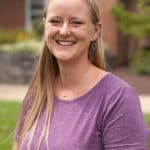

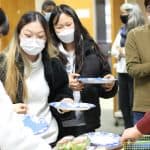
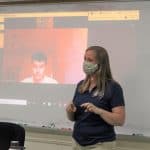
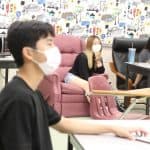


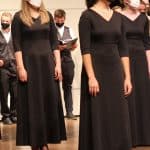
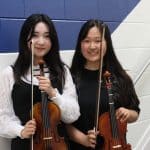
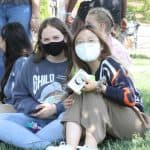
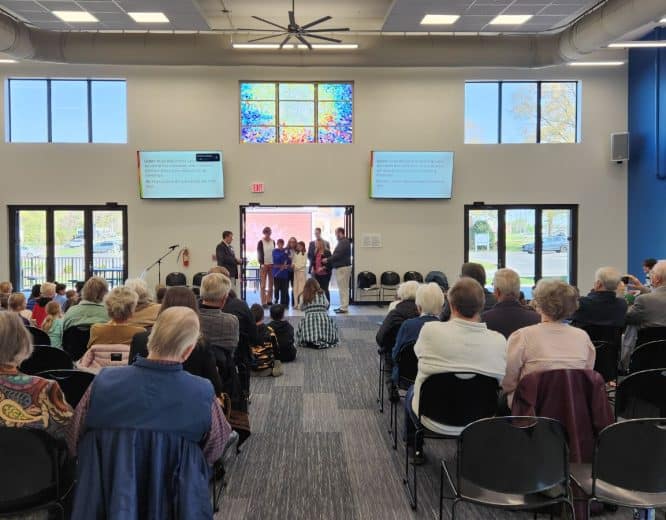

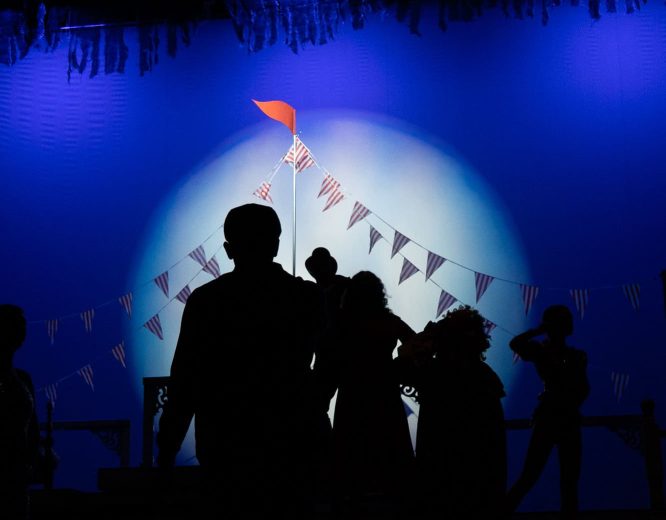
Estoy bastante impresionado con estos dos estudiantes y su disposición a compartir sus sentimientos y su fluidez con el idioma. Recuerdo cuando era estudiante lo mucho que me atraían los estudiantes extranjeros, especialmente un hermano y una hermana de China, un compañero de Corea que jugaba muy bien al ping-pong, dos compañeros de África donde mi prima era enfermera misionera. , dos hermanas de Hebrón que eran mis compañeras de cuarto (eso fue en la universidad), y Zoe de Grecia, Dora y otras de Alemania... y muchas otras... Sentí que ampliaron mi alcance e hicieron que mis días de estudiante fueran mucho más interesantes y valiosos de lo que serían. han estado sin ellos. Aunque he viajado a otros países, no podría haberme imaginado viviendo una vida de estudiante en algún país e idioma extranjero. Todavía estoy asombrado por aquellos que lo hacen.
Joyce: ¡qué maravilloso que aún recuerdes estas relaciones de tu época en EMS! Parece que tus conexiones con estudiantes internacionales hicieron que tu experiencia aquí fuera más significativa.